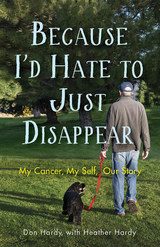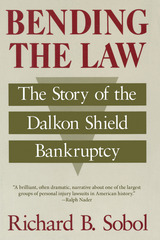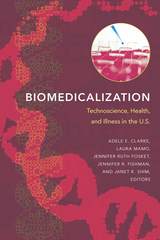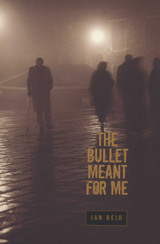5 start with B start with B

Because I’d Hate to Just Disappear is a portrait of a husband and wife, Don and Heather Hardy, thrown into the physical and emotional machinery of Don being diagnosed with leukemia and going through chemotherapy and treatment over a period of close to two years.
In this thoughtful and exquisite account, Don and Heather narrate Don’s struggle in real-time. Disarmingly honest, they recount each intimate stage of a couple living through cancer together, the mental and physical struggles, the humor and visceral emotion to reveal how two very different personalities shape—and are shaped by—the experience of cancer and its treatment. Through these moments emerge a constant flow of human kindness and discovery that lifts them each day.

"Mr. Sobol has produced a readable yet fully researched and detailed study of the operation of the bankruptcy and its effects upon all concerned—the women who were injured, the swarms of lawyers who represented parties in the bankruptcy, and the court which oversaw the bankruptcy in Richmond. . . . This book adds greatly to the current debate about how strong a managerial federal judge our system should have."—Paul D. Rheingold, New York Law Journal
"Bending the Law is polemical and relentless. It is also minutely researched, fluidly written, and persuasive."—Paul Reidinger, ABA Journal
"Bending the Law is a must read for bankruptcy practitioners, and for anyone else concerned about the use of bankruptcy law to deal with mass torts. Although its author is a civil rights lawyer, he details the subtle art of practicing bankruptcy law with a discerning eye, and is a gifted storyteller as well."—Joryn Jenkins, Federal Bar News and Journal
"This is an accessible history of the case by a veteran civil-rights lawyer."—Washington Post Book World

Contributors. Natalie Boero, Adele E. Clarke, Jennifer R. Fishman, Jennifer Ruth Fosket, Kelly Joyce, Jonathan Kahn, Laura Mamo, Jackie Orr, Elianne Riska, Janet K. Shim, Sara Shostak

Biosecurity Dilemmas examines conflicting values and interests in the practice of “biosecurity,” the safeguarding of populations against infectious diseases through security policies. Biosecurity encompasses both the natural occurrence of deadly disease outbreaks and the use of biological weapons. Christian Enemark focuses on six dreaded diseases that governments and international organizations give high priority for research, regulation, surveillance, and rapid response: pandemic influenza, drug-resistant tuberculosis, smallpox, Ebola, plague, and anthrax. The book is organized around four ethical dilemmas that arise when fear causes these diseases to be framed in terms of national or international security: protect or proliferate, secure or stifle, remedy or overkill, and attention or neglect. For instance, will prioritizing research into defending against a rare event such as a bioterrorist attack divert funds away from research into commonly occurring diseases? Or will securitizing a particular disease actually stifle research progress owing to security classification measures? Enemark provides a comprehensive analysis of the ethics of securitizing disease and explores ideas and policy recommendations about biological arms control, global health security, and public health ethics.

READERS
Browse our collection.
PUBLISHERS
See BiblioVault's publisher services.
STUDENT SERVICES
Files for college accessibility offices.
UChicago Accessibility Resources
home | accessibility | search | about | contact us
BiblioVault ® 2001 - 2024
The University of Chicago Press









